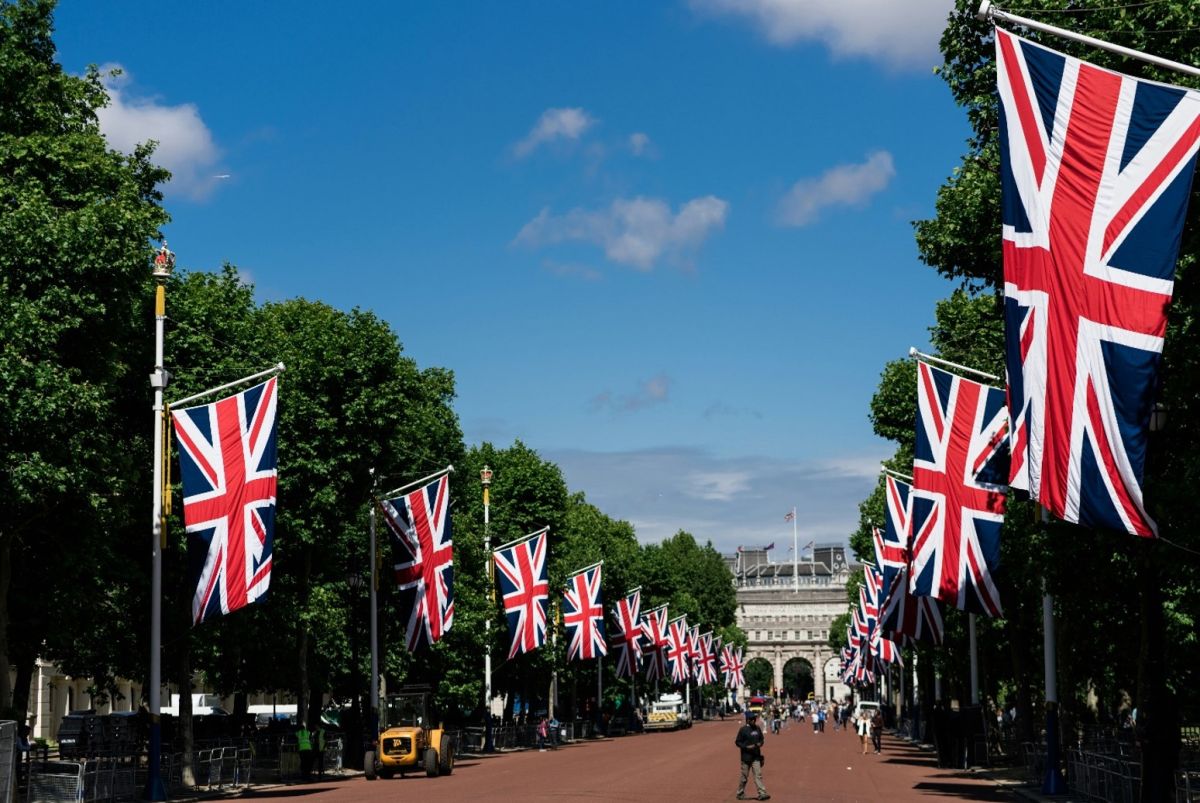
Economy, International Markets, Week in Review
UK economy defies expectations amid challenges
The U.K. economy continues to defy gloomy expectations, albeit just barely. A monthly survey of economists conducted by the U.K. Treasury shows the average forecast for GDP growth over 2024 has gone up from 0.4% in January 2024 to 0.9% in July 2024.

The U.K. economy continues to defy gloomy expectations, albeit just barely. A monthly survey of economists conducted by the U.K. Treasury shows the average forecast for GDP growth over 2024 has gone up from 0.4% in January 2024 to 0.9% in July 2024.
Why it matters: Credit managers with customers in the U.K. should proactively prepare for any factors that might impact payments, as businesses in the U.K. warn that the worst is yet to come.
- “The Chancellor issued an ominous warning that even more difficult decisions will be made in the Budget scheduled for the eve of Halloween,” said Myron Jobson, senior personal finance analyst for Interactive Investor.
While overall inflation has declined to 2%, measures of underlying inflation remain higher. For example, ‘core inflation’, which excludes food and energy prices, was 3.5% in June 2024, according to a House of Commons Library report. “Inflation is expected to rise a little over the rest of 2024, as previous falls in the annual comparison of energy prices ‘drop out’ of the inflation calculations (which only cover 12 months),” the report reads.
Yes, but: The BoE lowered its benchmark rate to 5.0% on Thursday, from a 16-year high of 5.25%, “offering a bit more relief to households and businesses who are emerging from the inflationary shocks of the COVID pandemic and Russia’s invasion of Ukraine,” reads a Reuters article.
What they’re saying: BoE Chief Economist Huw Pill, who voted to keep rates unchanged, welcomed the improved economic outlook, despite the historically slow growth rate of about 1% annually between 2024 and 2026.
Zoom out: The United Kingdom has a mixed market-based capitalist economy, heavily reliant on the services sector, particularly banking, insurance and business services. Principle material exports include machinery, electronics and cars while cultural exports include film, television and popular music.
In business, the British value fair trade and can be counted on to be reliable business partners. But they can be reserved and private, adhering to strict protocols. However, because of the worldwide tech boom and globalization, Britain’s traditional revered business culture is changing.
Here are some helpful tips for doing business in the U.K.:
#1 Keep your composure. Britons conduct themselves in a quiet, understated manner compared to people of many other cultures. Be sensitive and try to match the nuances of their behavior. Doing so can earn your counterparts’ esteem and may work in your favor during negotiations.
#2 Be punctual. In the U.K., punctuality is important, so arrive on time. If you’ll be late to a meeting, call ahead. Failing to do so shows a lack of seriousness about the meeting and the business relationship.
#3 Stick to the facts. Although British businesspeople value long-term relationships, they are more fact-driven when negotiating. For them, facts and figures are the only legitimate forms of persuasion. They may initiate a business deal with someone whom they don’t know very well, expecting that they will get to know them better later on.
#4 Take it easy. British businesspeople do their best to avoid confrontation and will often use humor to diffuse tense situations. Overconfidence is frowned upon in U.K. business. It’s better to be modest.
#5 Always know whom you are talking to. Awareness of the U.K.’s geography and the strong national identities of its citizens is vital. Referring to someone in the U.K. as something they are not will likely offend them.
- The U.K. is comprised of four countries: England, Scotland, Wales and Northern Ireland.
- “British” refers to people from England, Scotland, Wales or Northern Ireland, but “English” is reserved for those from England, while people from Scotland are “Scottish.”
- Those from Northern Ireland (or Ulster) are sometimes referred to as “Irish,” but the politically correct term is “Northern Irish,” as “Irish” generally refers to people from the Republic of Ireland, which is not part of the U.K.
By the numbers: Customers in the U.K. have averaged 15 days beyond terms, with 71% of respondents saying payment delays are staying the same, and 12% saying delays are increasing, per the FCIB Credit and Collections Survey. The most common causes for payment delays are cultural norms/customs (50%) and customer payment policy (47%).
What Survey respondents are saying:
- “It’s a mature market, therefore, we don’t face challenges in payment due to the Prompt Payment Act in U.K.”
- “It’s easy to sell here as long as you accept that they pay on their terms and are not very flexible.”
- “Prepay only, if possible, for the U.K. Wires take a few additional days to process for some reason.”
The bottom line: Despite the U.K. economy defying expectations, credit managers should anticipate potential impacts on payments due to warnings of forthcoming economic challenges and a trend of delayed payments in the market.





